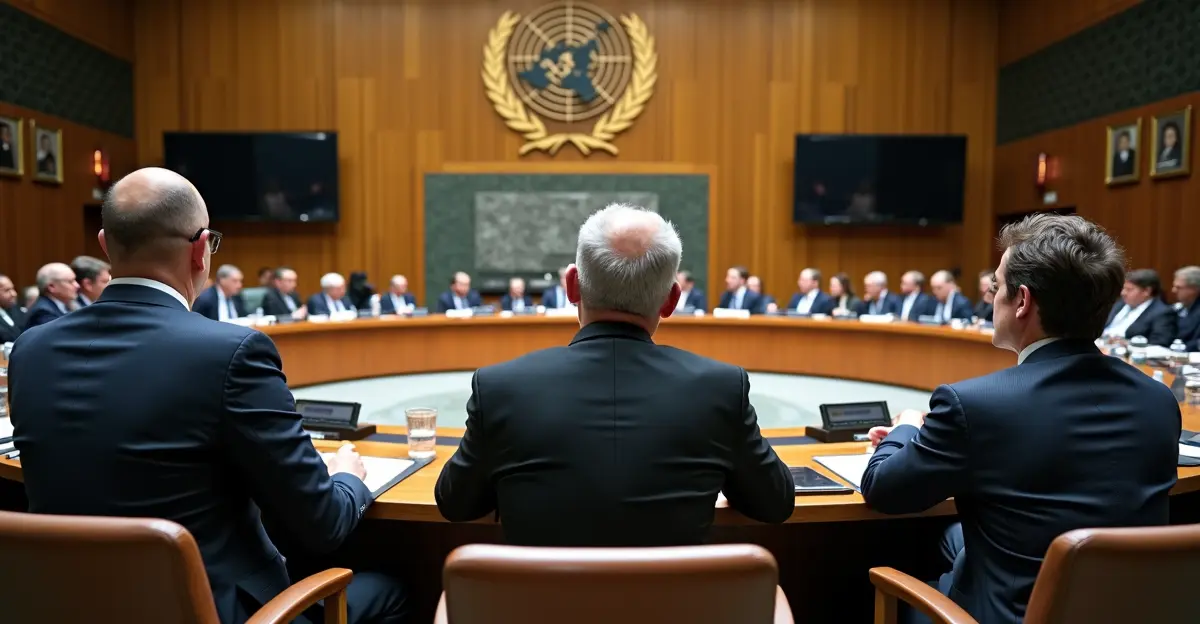
Global Powers Clash Over UN Security Council Reform
As we enter 2025, the long-standing debate over United Nations Security Council reform has reached a critical juncture. The current structure, established in 1945 with five permanent members (China, France, Russia, the United Kingdom, and the United States), faces mounting pressure to adapt to the 21st century geopolitical landscape.
The G4 Nations Push for Permanent Seats
Brazil, Germany, India, and Japan - collectively known as the G4 nations - have intensified their campaign for permanent Security Council seats. These economic powerhouses argue that the current composition fails to reflect contemporary global realities. "The Security Council must evolve to represent the world as it is today, not as it was 80 years ago," stated Indian Ambassador Ruchira Kamboj during recent negotiations.
Each G4 member brings compelling credentials: India as the world's most populous democracy and fifth-largest economy, Japan as the third-largest economy, Germany as Europe's economic engine, and Brazil as South America's dominant power. Together, they've spent over 64 years serving as non-permanent members since the UN's inception.
Opposition from Uniting for Consensus
Led by Italy, the Uniting for Consensus (UfC) movement strongly opposes the G4 proposal. This coalition of approximately 50 countries argues that adding more permanent seats would create further inequality within the UN system. Instead, UfC advocates expanding non-permanent membership from 10 to 20 seats, with longer terms but without veto power.
"Creating new permanent seats only benefits the few at the expense of the many," argued Italian Foreign Minister Antonio Tajani. "We need a more democratic, representative system that gives smaller nations a genuine voice."
African Union Demands Representation
The African Union continues to demand at least two permanent seats for African nations, arguing that the continent's 1.4 billion people deserve proper representation. Current proposals suggest Nigeria, South Africa, or Egypt as potential candidates, though consensus within Africa remains challenging.
Veto Power: The Ultimate Sticking Point
The veto power held by the P5 remains the most contentious issue. Many member states want to limit or abolish the veto, particularly after its use during critical humanitarian crises. However, all five permanent members must approve any reform, creating a nearly insurmountable constitutional hurdle.
Recent events, including multiple vetoes on resolutions concerning Ukraine and Gaza, have fueled calls for reform. "The veto should not be a tool to protect national interests at the expense of global peace," argued Mexican Ambassador Juan Ramón de la Fuente.
Path Forward Requires Unprecedented Consensus
Any successful reform requires agreement from two-thirds of UN member states (129 countries) and ratification by all five permanent members. This high threshold has prevented meaningful change for decades, despite widespread recognition that the current system is outdated.
As negotiations continue throughout 2025, diplomats remain cautiously optimistic that incremental progress might be possible, particularly on working methods and transparency, even if structural reform proves elusive.

 Nederlands
Nederlands English
English Français
Français Deutsch
Deutsch Español
Español Português
Português


